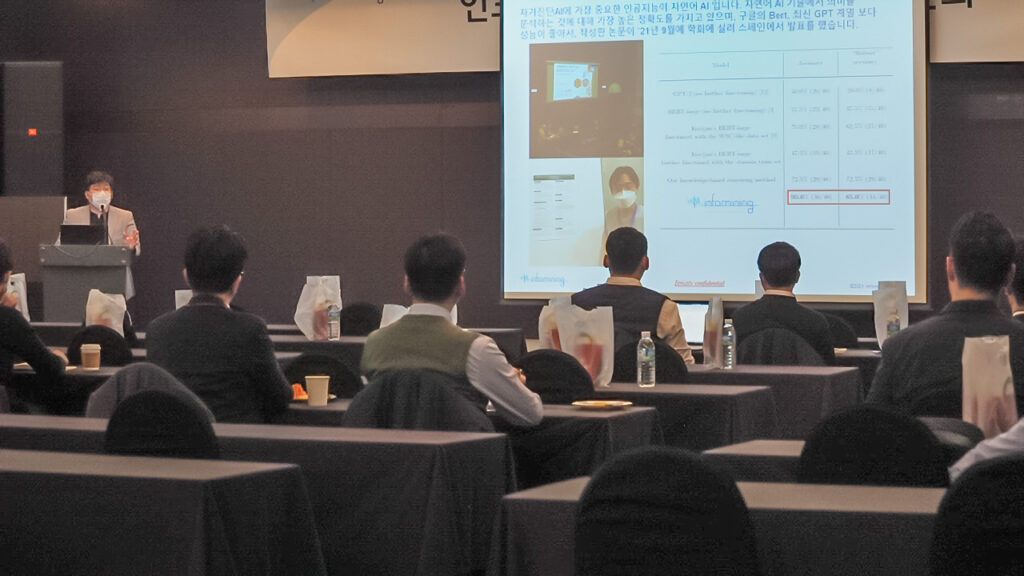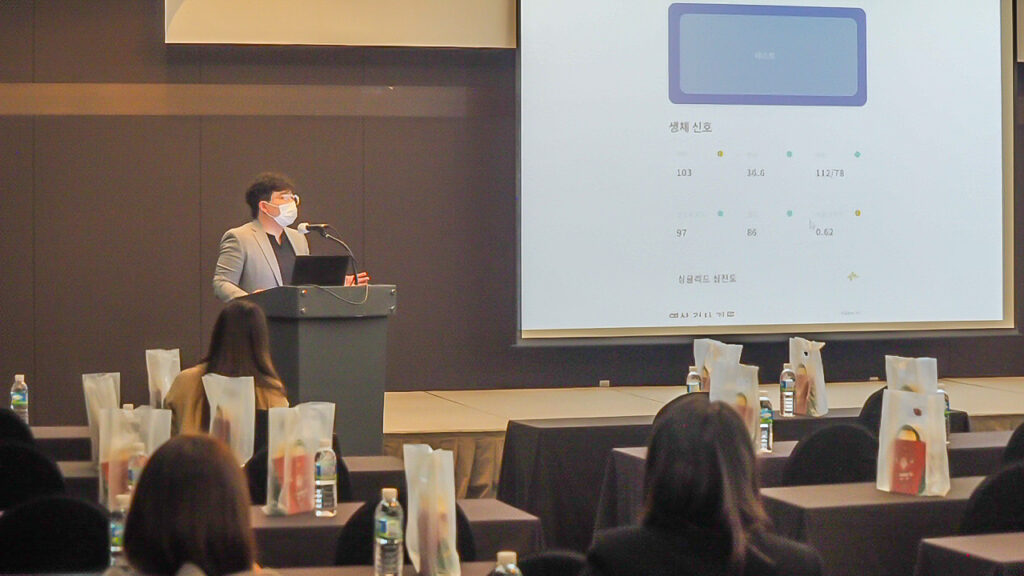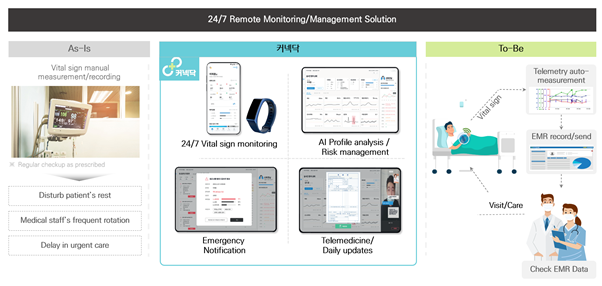
Due to COVID-19, the world has experienced a pandemic and has become a “world where it is not natural.” This has caused mixed feelings in markets around the world. As non-face-to-face meetings such as remote classes and meetings became prevalent, the face-to-face industry was reduced and the growth of the digital industry accelerated.And at the heart of it is the digital healthcare industry. Safety controversy and ambiguous guidelines for health-related digital medical services have hampered the digital health industry. However, as COVID-19 intensifies, face-to-face treatment becomes difficult, interest in non-face-to-face telemedicine has increased, and interest in the digital health industry has soared worldwide. Today, we’re going to talk about the digital healthcare industry, which has endless possibilities. Digital healthcare is remote and aims to help you manage your personal health, predict disease, and enjoy a better life by going further from diagnosing and treating diseases. Basically, it has the characteristics of 4P. Predictive, preventive. Patient engagement, personalized/personalized. These four characteristics provide customized services and health care. And because it’s a ‘digital’ healthcare industry, the biggest foundation is data. It analyzes through various personal data, enables telemedicine and care without visiting, and individuals have their own “health doctors.” Data collection mentioned in this part, especially the purpose of care and the area of medical diagnosis prescription, can be raised as a boundary or competition structure between digital healthcare and professional doctors. However, specialists have already recognized digital healthcare as a trend, actively utilized, and used it.

Infomining has built an integrated monitoring solution based on artificial intelligence (based on shared legal data).In addition, basic health measurement wearable devices with simple and accurate accuracy are also produced and produced by themselves.Currently, both Apple Watch and Galaxy Watch have various performances and functions in conjunction with smartphones, and the design considering consumers’ preferences is also excellent.However, it clearly falls short of the area of professional healthcare devices, and consumers are not using it as professional healthcare. Infomining’s devices already exceed the measurements compared to professional medical devices.This has already been tested on university hospital specialists and patients in Korea and is being implemented based on about 100 beds in the actual inpatient ward, and based on this, it is planned to be used in more than 1,000 medical university wards. It can be said to be the core of the smart ward currently being promoted.(Yonsei University Hospital, Korea)

By applying this, it is certainly improving excessive work for medical staff, especially nursing assistants. Usually, Korean university hospital workers are managed 24 hours a day in three shifts, but professional nursing staff must check patients at all times, visit the ward, check their vitals, and conduct medical activities.(Medication and Prescription, Emergency Action) Thus, an integrated monitoring system through a device built with infomining can check and take action through the system in one space. This can be said to be the core of being built as a smart ward.
It was confirmed that not only large hospitals but also examination centers are approaching a number of movements to introduce and cooperate with infomining development technology for daily life pre- and post-care

▲ INFOMINING CO., LTD.
▲ CEO : Jae-yong Lee
▲ http://infomining.co.kr
▲ worldconsult@infomining.co.kr
▲ +82-70-4914-2970
H.S HA
ASIA JOURNAL

